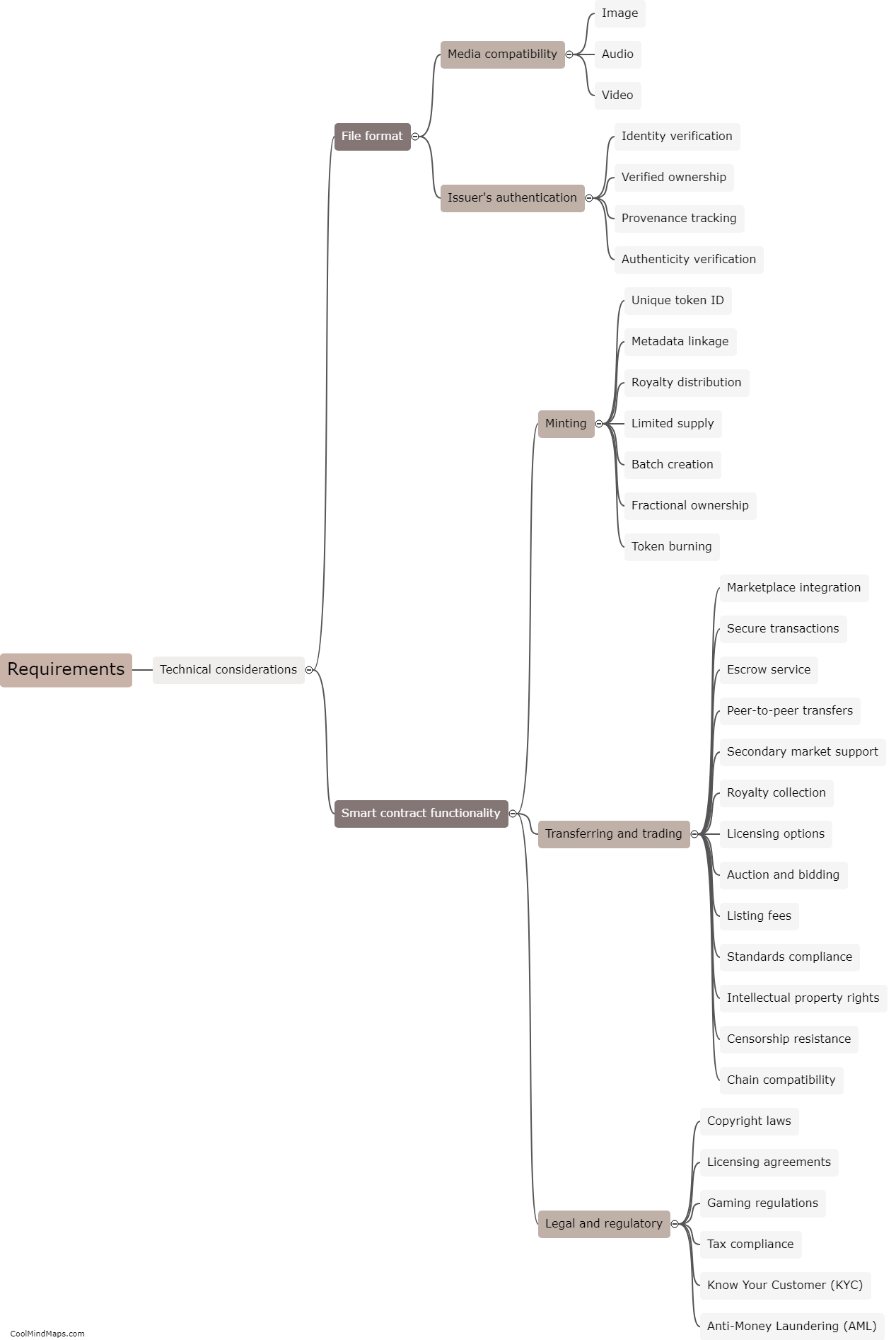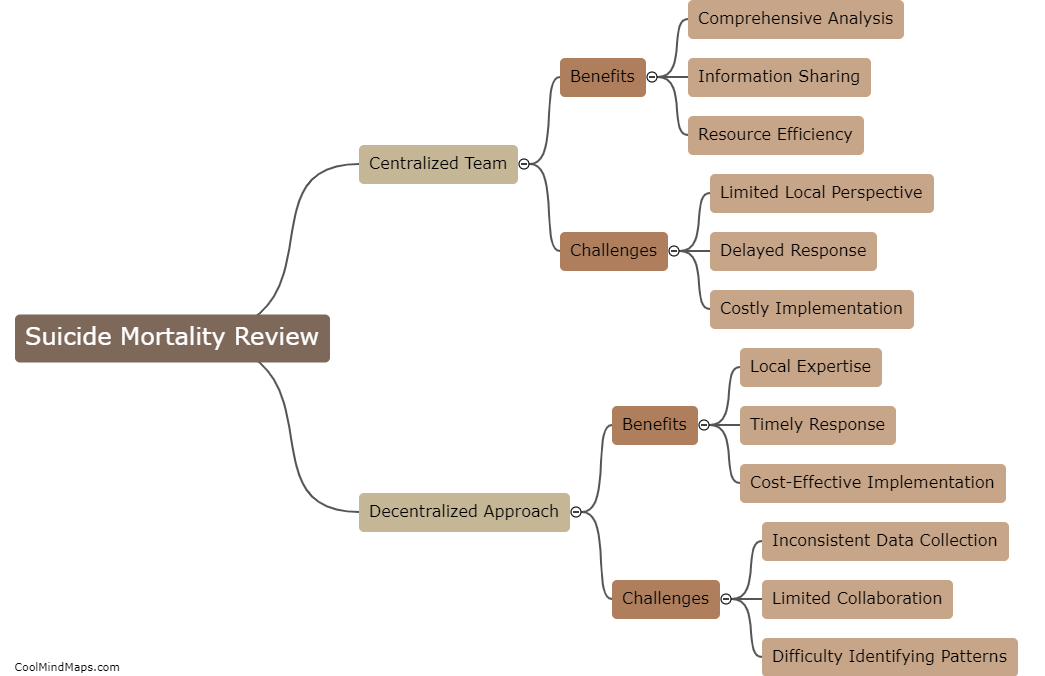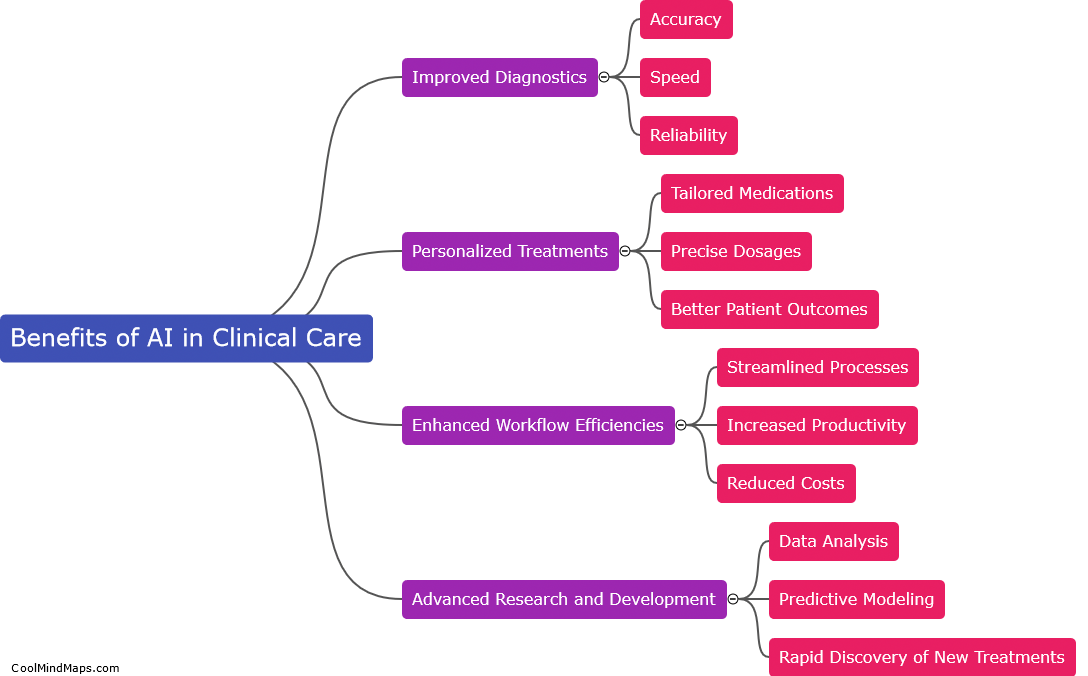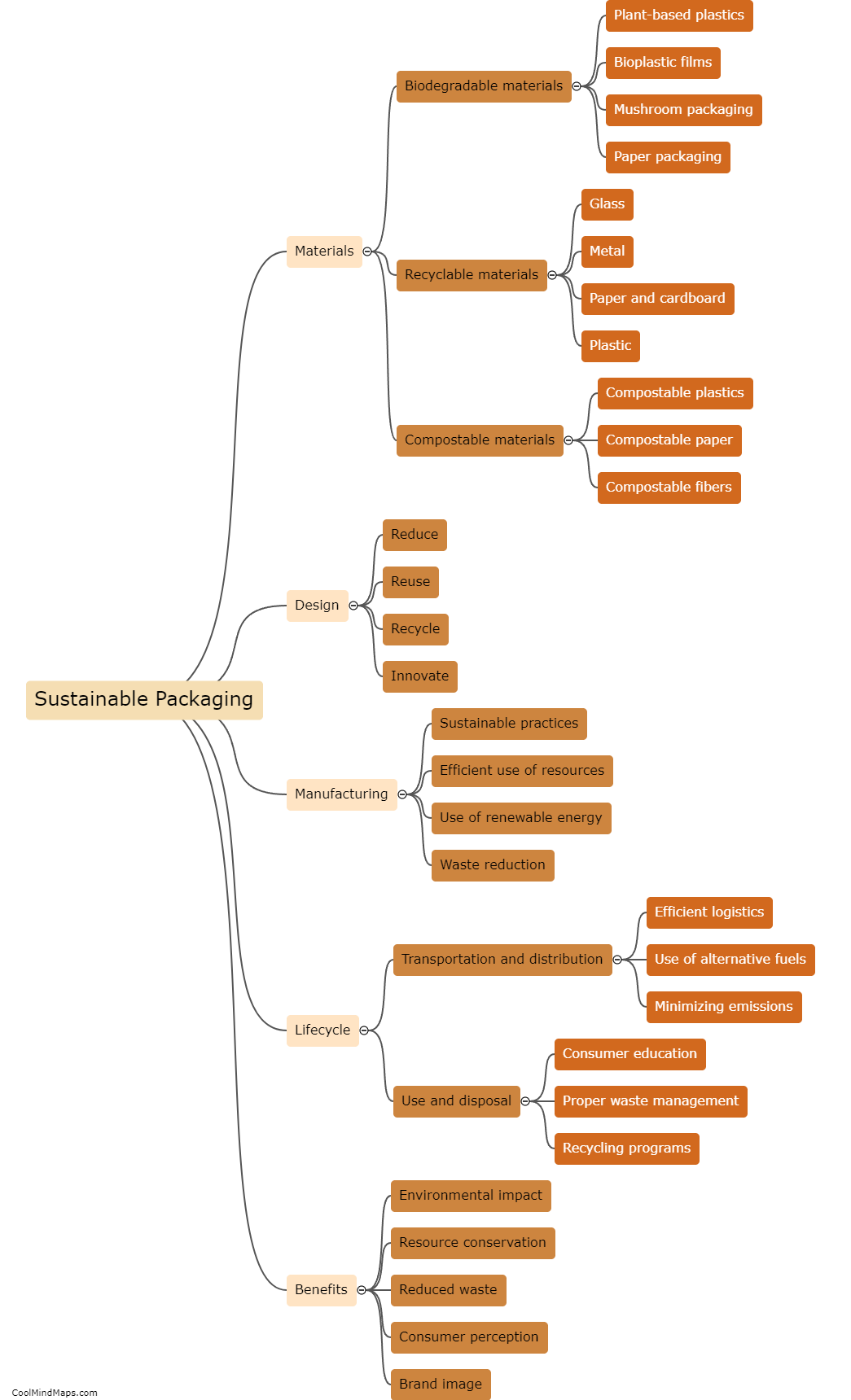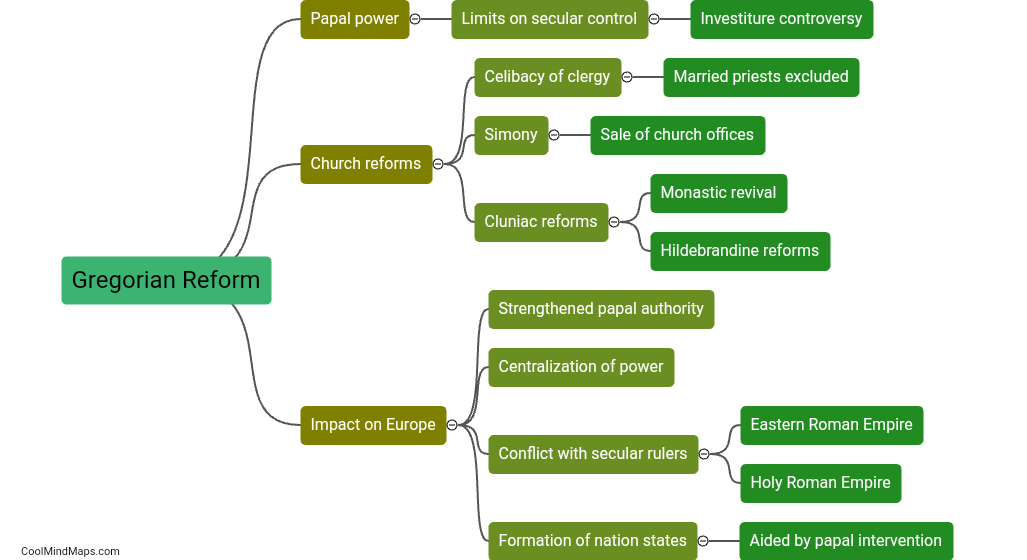How do subjective models differ based on leadership?
Subjective models, such as decision-making or judgment processes, tend to differ based on leadership styles and approaches. Different leaders bring their unique perspectives, biases, and personal experiences to their decision-making, which can shape and influence subjective models. For example, autocratic leaders might have a more centralized decision-making style, where their subjective models are based on their personal beliefs and preferences. On the other hand, transformational leaders might have a more inclusive and collaborative approach, where they consider input from various stakeholders and strive to create consensus. These differences in leadership styles can lead to variations in subjective models, with some leaders emphasizing intuition, emotions, or rationality more heavily in their decision-making processes. Ultimately, subjective models are heavily influenced by leadership and can greatly impact organizational outcomes.
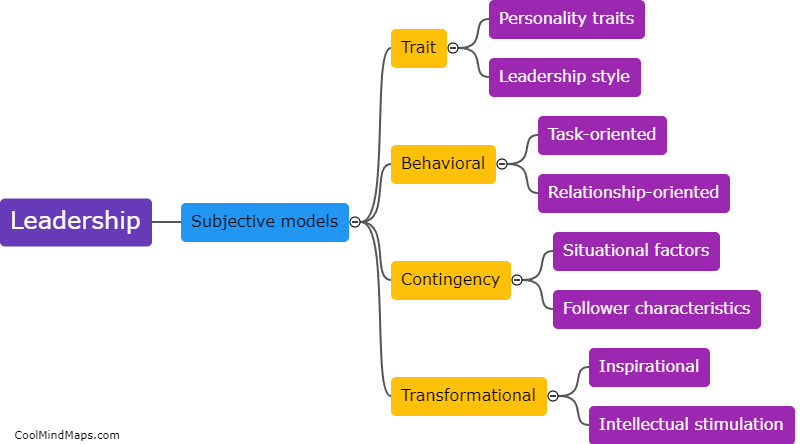
This mind map was published on 28 November 2023 and has been viewed 176 times.
